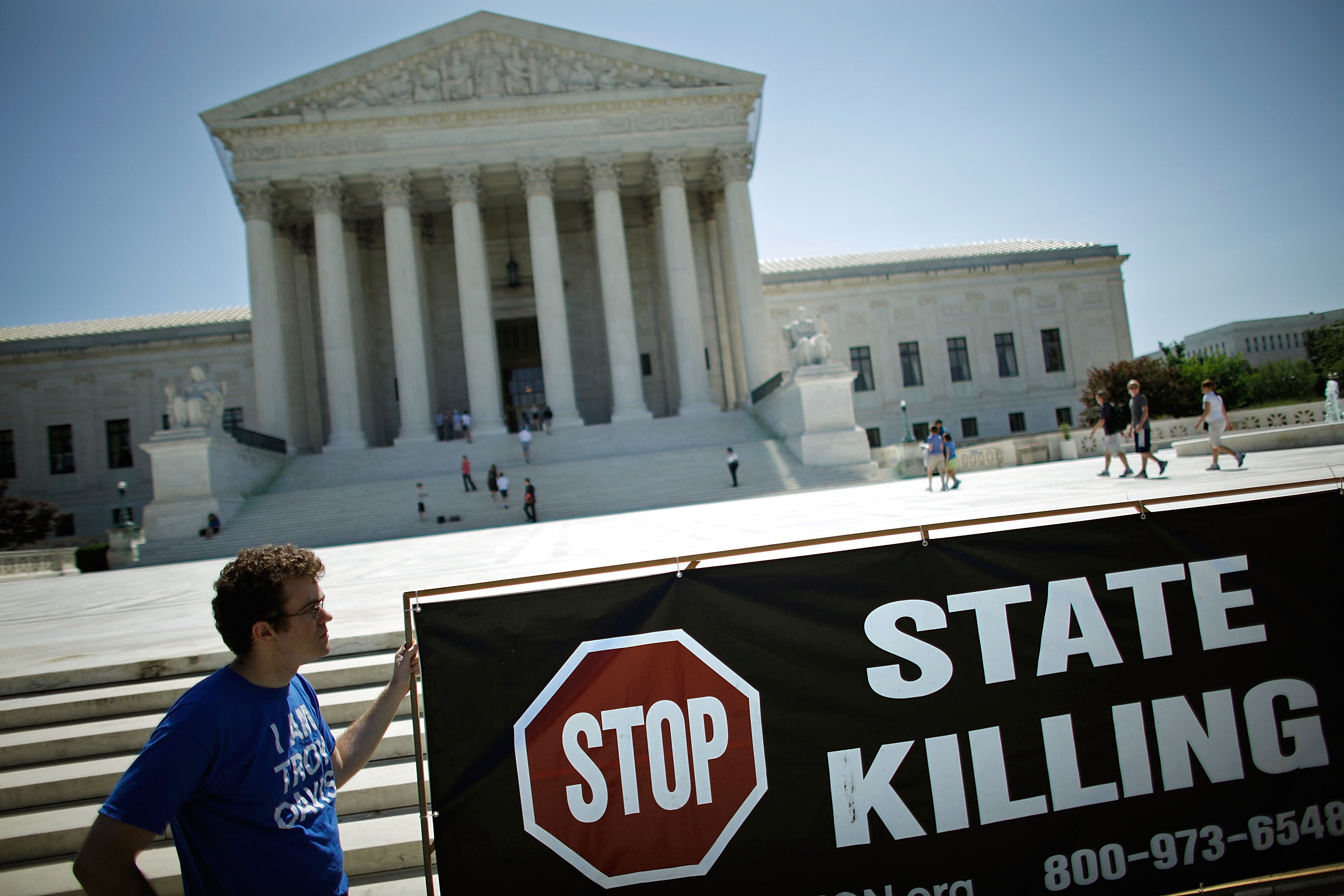Lawsuit set to challenge Arizona secrecy on death penalty
Legal push will also challenge the use of controversial sedative Midazolam in executions

Your support helps us to tell the story
From reproductive rights to climate change to Big Tech, The Independent is on the ground when the story is developing. Whether it's investigating the financials of Elon Musk's pro-Trump PAC or producing our latest documentary, 'The A Word', which shines a light on the American women fighting for reproductive rights, we know how important it is to parse out the facts from the messaging.
At such a critical moment in US history, we need reporters on the ground. Your donation allows us to keep sending journalists to speak to both sides of the story.
The Independent is trusted by Americans across the entire political spectrum. And unlike many other quality news outlets, we choose not to lock Americans out of our reporting and analysis with paywalls. We believe quality journalism should be available to everyone, paid for by those who can afford it.
Your support makes all the difference.An Arizona federal court will soon hear a case that would force state officials to identify execution staff and the source of execution drugs used to carry out the state’s death penalty, a US public defender told The Independent Tuesday.
Most states where capital punishment is legal withhold the identities of people involved in executions and drug providers — either with laws that punish the publication of information on parties to executions or policies that maintain executioners and drug providers are exempt from laws requiring that officials disclose their activity.
States like Oklahoma have imposed laws barring access to the information, saying that they are protecting the safety of people involved in executions. But death penalty opponents say the states are afraid that activists will pressure drug suppliers to stop selling the drug to Corrections Departments across the US amid an apparent shortage.
A lawsuit filed by public defender Dale Baich last year challenged the constitutionality of Arizona’s secrecy over capital punishment ahead of the execution of inmate Joseph Rudolph Wood, arguing that he and other plaintiffs had a 1st Amendment right to know how the state would execute them.
Wood, who had been convicted of murdering his girlfriend, was executed on July 23, 2014 in a botched execution that took nearly two hours. Witnesses to the execution did not know that executioners administered 15 times the amount of lethal injection drug prescribed by Arizona Corrections Department protocol.
Mr Baich has since amended the lawsuit, seen by The Independent, that will now include free speech advocates First Amendment Coalition of Arizona as plaintiffs and, in addition to unveiling the parties involved in executions, take on the state’s use of the sedative Midazolam in executions. Judges will hear the lawsuit at a status conference on January 12.
Midazolam is the sedative used in the botched executions of inmates like Oklahoma’s Clayton Lockett, who witnesses say died after more than 40 minutes of writhing in pain. The drug’s use was challenged in US Supreme Court case Glossip v. Gross, but the Supreme Court ruled the drug did not amount to cruel and unusual punishment.
Dan Peitzmeyer, spokesman for local advocacy group Death Penalty Alternatives for Arizona, said he hopes Mr Baich’s litigation will start a precedent for greater transparency into the death penalty across the nation.
“Citizens have a right to know what their government is doing,” Mr Peitzmeyer told The Independent.
He offered Wood’s botched execution with 14 more rounds of lethal injection drug than usual as an example of what he calls a lack of oversight and accountability. “Protocol doesn’t mean a damn thing. The Department of Corrections does what they want to do,” he said.
The Arizona Corrections Department and Attorney General’s Office did not immediately respond to requests for comment from The Independent.
But one federal court ruling in Mr Baich’s favor may still not be enough to force states to disclose information on who conducts executions and how they do it.
The director at Washington-based advocacy organization the Death Penalty Information Center, Richard Dieter, told The Independent that different states like Ohio and Tennessee have imposed laws to block the information, but legal authorities in other states have withheld the information without any amendable law on the books.
It’s “hard to say” whether the Arizona litigation will have any national precedent, Mr Baich said.
“If a federal court in Arizona rules in our favour, for instance, that would not be binding on the federal courts in Missouri,” Mr Baich said. “It would have to be the [US] Supreme Court that would say, ‘This is permissible, this is not permissible.'”
“But that being said, I think if courts around the country start expressing concerns about secrecy … it might start a discussion in the legislatures and as part of public opinion about whether this secrecy is a good thing," Mr Baich added.
Join our commenting forum
Join thought-provoking conversations, follow other Independent readers and see their replies
Comments